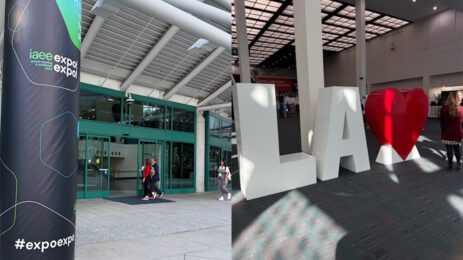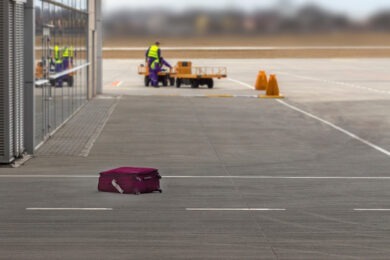There are only 77 reported cases of the fourth Covid variant, Omicron, in South Africa and 19 in Botswana as of Nov. 30. Yet in just two weeks, the variant is known to have spread to 17 countries: South Africa, Botswana, Belgium, Brazil, Canada, Czech Republic, Denmark, Germany, Israel, Italy, Japan, the Netherlands, Portugal, Spain, Sweden, Switzerland, as well as Hong Kong and Reunion, a French island. World leaders are closing borders and issuing tighter restrictions. But what does this mean for meeting planners and business travelers? Is it time to “lift and shift” events again?
There isn’t much consensus on how countries should respond and whether international travel should be suspended. Still, and perhaps partially a result, many travelers have found themselves stranded since the weekend, hundreds of flights are suspended, and some events are already being canceled.
In the last week, major global events, sporting events and holiday parties across Europe and Africa have slowly been getting called off. The U.K. has already seen large gatherings canceled, as the country is currently experiencing 14 reported Omicron cases.
As of Nov. 30, widespread rescissions have not quite reached the U.S., but fears certainly have. Holiday travelers are adjusting their trips. Airlines are seeing travelers push their flights back to the early months of the new year, rather than cancel them outright.
PCMA President & CEO Sherrif Karamat, who is bringing vaccinated meeting professionals to Las Vegas in six weeks for Convening Leaders 2022, encouraged the business events industry to remain vigilant. “Volatility around this virus is expected and will continue, thus we cannot lose sight of the importance of being safe—wearing a mask, being vaccinated—and listening to the facts delivered by medical experts so we can continue to run our businesses effectively.”
A cautious, collaborative and measured approach by meeting planners, destinations and venues has prevented mass corporate event cancellations thus far. “Partners are working together at an unprecedented level,” said Destinations International CEO Don Welsh. Welsh and his colleagues remain pleased with the comeback of association meetings and large and small corporate meetings. From Mexico to the U.K., strict health and security standards remain in place, Welsh said, adding that “requirements are probably going to be with us for the foreseeable future.” But this is what has made for a successful comeback of meetings and events, and what preserves the industry against the Omicron variant.
As of Monday, India, Italy and Denmark are mandating that travelers from southern Africa show proof of a negative PCR test taken within 72 hours of boarding, take a test upon their arrival and quarantine for 10-14 days, depending on the constraints of the country. Argentina requires these steps of anyone arriving from any part the African continent, and noncitizens and nonresidents have to show proof of health insurance that covers Covid-19 infection to enter the country.
More: Demystifying Covid Testing: The Differences, Access and What It All Means for Travelers
Ireland and Spain are only requiring their visitors and returners to quarantine for up to 14 days. Morocco, on the other hand, has entirely closed its borders for the next two months—even to their returning citizens. Israel has also closed its borders but is allowing citizens and permanent residents with a negative Covid test to return home to quarantine.
Many countries are halting almost all inbound flights from the southern African countries. Kuwait, Saudi Arabia, Brazil, the UAE and Egypt have halted nearly all flights from the region.
The following countries and regions are closed to inbound international air travel from eight countries in southern Africa.
Angola
Australia
Canada
China
Hong Kong
Fiji
France
Germany
Greece
Indonesia
Japan
Maldives
Malta
Netherlands
New Zealand
Oman
Pakistan
Philippines
Russia
Rwanda
Singapore
Sri Lanka
Turkey
U.K.
U.S.
It is yet unclear how this virus variant will react to the Covid vaccine. The World Health Organization has reported that those who’ve contracted Covid-19 previously may be more susceptible to the Omicron variant, compared to the Delta or other variants that appeared in the last year; but the variant’s severity is still a question among scientists.
The PCR test has proven successful in Omicron infection detection. Most countries requiring testing for entry due to Omicron will require you to take a PCR or other viral test before departing from the southern African continent.
Completing your vaccination is still recommended, however, as evidence has determined vaccines reduce the severity of symptoms of the Delta variant and can prevent symptomatic contraction altogether. Medical and research virologists are racing to test and answer the question of how best to combat the newest variant’s spread.
But there is very little that virologists can tell us about the success of vaccines in the face of Omicron at this point. What we do know is that this variant spreads fast, perhaps faster than any variant we’ve seen yet, according to virologists at the University of Texas Medical Branch. So, it’s best not to get used to forgetting your mask while walking out the door.




